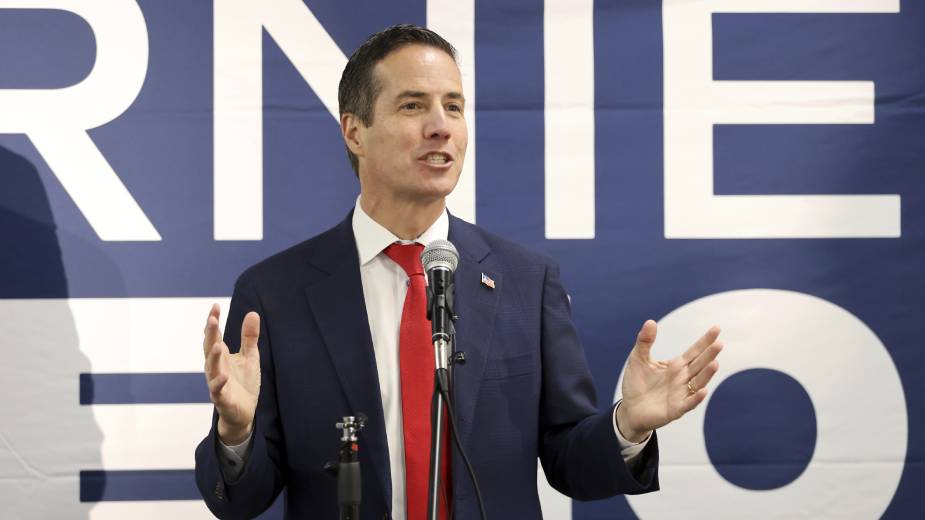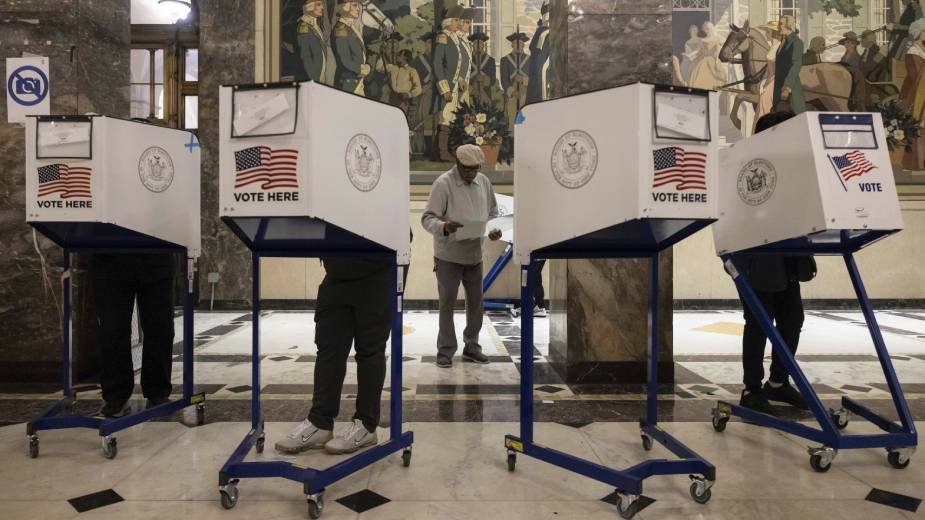Sracic Assesses Effects of Trump, Clinton on Valley
BOARDMAN, Ohio – Donald Trump, Hillary Clinton and their surrogates are frequent visitors to the Mahoning Valley this presidential campaign, Paul Sracic noted Thursday, so how would their economic proposals affect its economy?
Sracic, professor and chairman of the department of politics and international relations at Youngstown State University, offered some insights as the keynote speaker at the Salute to Business breakfast of the Youngstown Warren Regional Chamber.
Surprisingly, he said, Trump has been more specific about the policies he would implement upon becoming president than Clinton. One area of commonality is that both have pledged to renegotiate Nafta – North American Free Trade Agreement – and stand opposed to TPP, the proposed Trans Pacific Partnership, Trump more vociferously than the Democratic nominee.
While the race is where it was before both parties held their national conventions – both candidates have seen their post-convention bounces dissipate, Sracic said – that leaves Clinton still well ahead of the Republican nominee.
In a telephone interview afterward, Sracic gave odds of Clinton winning the election at not quite 2:1 – “65% to 35%.”
He expects Clinton to prevail – she’s ahead today by four points – “but the race is closer than it seems,” the professor said.
Regardless of who wins, the policies the winner advocates must pass Congress, and Sracic predicts another two years of gridlock because the House should remain in Republican control. He expects the GOP to lose 10 seats at most, reducing its majority to 236 seats of 435, and the Democrats to regain control of the Senate but not win back enough seats to reach 60. Sixty seats are required to thwart filibusters.
“The Republicans have a bad [Senate] map,” Sracic pointed out, because they have 24 seats to defend to the Democrats’ 10.
The 16 Ohio seats in the House should remain 12 Republican, four Democratic, Sracic predicts, Tim Ryan and Bill Johnson will be easily re-elected in the 13th and 6th districts respectively. Republican David Joyce, who represents the 15th district – 12 counties in south central Ohio – is the most vulnerable incumbent but should keep his seat, he said.
U.S. Sen. Rob Portman R-Ohio, is comfortably ahead of his Democratic challenger, former Gov. Ted Strickland, by anywhere from nine to 13 points.
The GOP “must lose 30 seats to lose control of the House.” Sracic said. “I don’t see it happening. Gerrymandering will prevent it.”
Thus a President Hillary Clinton “will have continued gridlock.”
The enthusiasm for free trade, long a Republican core tenet, resulted in passage of Nafta in 1993 and the Obama Administration working to reduce or eliminate barriers in Latin American and Pacific Rim nations.
Trump has blamed Nafta for the loss of thousands of manufacturing jobs in this country and Sen. Bernie Sanders’ challenge to Clinton in the Democratic primaries caused her to retreat from her support of TPP.
The Mahoning Valley is a major exporter of aluminum and steel products, Sracic reminded his audience of 400 at Mr. Anthony’s. It ranks ninth in the United States in aluminum and third in steel.
Should Trump be elected, he could not unilaterally abrogate Nafta or other free trade agreements in place, but he could raise some tariffs, Sracic said. This in turn would likely result in retaliatory tariffs and eventual job losses in the Valley. The region is “more export dependent” than most residents appreciate.
Regardless of who’s elected president, free trade has crested for some time to come, Sracic suggested, and no new free trade agreements are likely to be ratified in the near future.
By the same token, with gridlock in Congress also likely to continue, he sees it as highly unlikely that any free trade agreements will be repealed or greatly modified.
Trump has proposed lowering the highest corporate tax rate to 15% (from 35%) and providing more tax breaks to real estate developers. He has been silent on how he would make up the revenues that would be lost.
Should Trump be elected, Sracic observed, he would grow increasing frustrated because he does not appreciate the separation of powers between the executive and legislative branches. A CEO in the private sector can order a course of action while the president of the United States must get Congress to buy into his policies, he said.
RELATED:
Chamber Unveils Hillary Bobblehead, Salutes 5
Copyright 2024 The Business Journal, Youngstown, Ohio.



